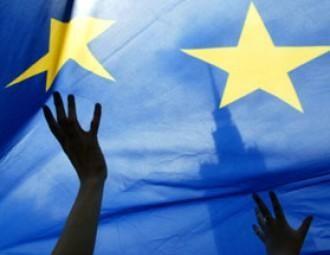Andrei Yahorau: Russia doesn’t have enough political leverage to influence Belarus

Though Belarus masterly exploits Russian geopolitical ambitions, Russia is unable to stop our country from participation in the EU integration processes.
European integration projects cannot compete with Russian-Belarusan allied relations at least because “it is from Europe that we get a concrete list of standards and norms necessary for the European integration; whereas Russia doesn’t have any evident demands when it comes to cooperation with Belarus”. This opinion in the talk with the EuroBelarus Information Service shared Andrei Yahorau, political scientist, the director of the Centre for European transformation.
At the CIS Foreign Ministers Council's meeting that took place in Tashkent Vladimir Jarikhin, Vice Director of the Institute for CIS Countries emphasized that the EU project “Eastern Partnership” is a competitor to the Commonwealth.
At the forthcoming summit in Vilnius the leaders of both the EU as well as EaP will sum up the results of the five years during which the project exists. Previously Brussels hasn’t excluded the possibility of signing an agreement that would create free trade zones with Ukraine, Moldova, Georgia and Armenia.
The claims of the high-ranking Russian politicians that cooperation within the Commonwealth won’t impede other directions of foreign policy and foreign economic activity don’t mean that our eastern neighbours have become more serious about the EU integration project, as “Russia has been taking Eastern Partnership very seriously”, - Andrei Yahorau believes.
The expert finds talks about cooperation between EaP and CIS to be not very consistent either: “We can observe competence between the Eastern Partnership and the EU as well as some other integration projects developed by Russia. As opposed to real associations, such as the Customs Union, CIS was a stillborn initiative aimed at disguising USSR disintegration from the very beginning. That is why, being a real initiative, Eastern Partnership is by no means a rival to such a sham organization as CIS”.
“Eastern Partnership should be viewed as a preliminary stage for the states that claim to become candidates for the membership in the EU, - notes Andrei Yahorau. - Of course, Russia is interested in the post-Soviet countries to take other course. Therefore, such projects as the Customs Union and the Eurasian Union serve Russia’s interests”.
If we assume that some principal choice will appear before the states that are both the CIS and the EaP members, it is very difficult to forecast their exact behavior, Andrei Yahorau believes. “So far some countries manage to gain benefits from both projects, like, for example, Armenia, which is a good example of Europe and Russia relations’ development at the same time. So if we take things rationally and seriously, we can find possible variants to coexist in these unions”.
Despite Russia’s position as our closest ally, it is unable to block the participation of Belarus in the EaP project, Andrei Yahorau is sure: “For now Russia is unable to stop anyone from participation in whatever associations, if we doesn’t take possible barbarous actions into consideration – such as we witnessed during the Russia-Georgia conflict in 2008. I don’t think that Russia has enough political and economic leverage to influence Belarus so that it will seriously impede the development of Belarusan-European relations”.
-
03.01
-
07.10
-
22.09
-
17.08
-
12.08
-
30.09








































